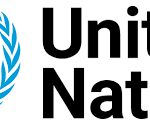By Hassan Zaggi
Contrary to the erroneous believe that the National Emergency Medical Services scheme of the federal government is only aimed at supporting accident victims on the highways, the Minister of Health, Osagie Ehanire, has disclosed that malaria and other forms of illnesses are classified as emergencies, hence, included in the scheme.
He disclosed this at a media briefing in Abuja, Monday.
It would be recalled that in an effort to reduce the number of deaths caused by the delay in access to healthcare services, the federal government recently announced plans to introduce the National Emergency Medical Service and Ambulance System.
This, the federal government said, will provide prompt and efficient emergency medical services to the people in desperate need of medical attention.
It would further be recalled that 5 per cent from Basic Health Care Provision Fund (BHCPF) is dedicated for the national emergency medical treatment.
According to Ehanire, the fund will help to take care of emergencies on the highways
He, however, explained that: “But that is just a small fraction of it. We forget if a woman is pregnant in the night and is ready to deliver and cannot get to the hospital, is also an emergency. If they have delivered and they are having complications is also an emergency.
“An estimated 30 children are lost to malaria every day in Nigeria. These are emergencies, they happen frequently everyday more than road accidents.
“The idea is to develop a very robust resilient emergency medical system that can take care of all forms of emergencies that you can call from your house.
“Even in your house, somebody can fall and break a leg or have some form of injury or stroke, that is what the emergency services is there for.
“For example, if grand mother falls on the passage way of the door and has dislocation is an emergency because at that point you will not know what to do.
“Anything that puts you in an uncomfortable situation, is an emergency. You can call for help and there is no charge for the care. That is the most valuable services a country can give to its people which this administration is preparing right now to roll out.”
The Minister however, debunked the news making the round that the Federal Ministry of Health presented a budget of N82 billion Naira for procurement of mosquito nets.
This, according to the Minister, is misleading and not representative of the facts of the matter.
According to him: “The amount in question apparently refers to US$200million component of a World Bank assisted multilateral borrowing plan offer to Nigeria, involving the African Development Bank and Islamic Development Bank under project development and negotiation with Ministry of Health and Ministry of Finance, Budget & National Planning since 2018.
“It is to fulfill Nigeria’s counterpart funding obligation to complement the foreign grants to execute the Global Malaria Action Plan GMAP for malaria control and elimination, a project developed by Roll-Back-Malaria (RBM) Partnership, set up in 1998 by WHO, UNICEF, UNFPA and World Bank, endorsed by African Heads of State in 2000. The Initiative has gone on since then and goes well beyond buying mosquito nets alone. It includes testing, treatment and other measures that helped to reduce malaria prevalence to 23% in Nigeria.
“The main donations to this project are US$195million over 3 years by the United States Presidential Malaria Initiative (PMI) that will cover 11 STATES, Global Fund to fight HIV/AIDS, Tuberculosis and Malaria, provides $403 million over 3 years to cover 13 States, leaving 13 STATES of Abia, Anambra, Bayelsa, Borno, Edo, Ekiti, Enugu, Ondo, Kogi, Imo, Lagos, Rivers and FCT, without funding. For full coverage and as condition to release their own grants, partners want Nigeria to be responsible for these States, to make it a 3-way project of the US Government, Global Fund and Government of Nigeria.”
The Minister further stressed that “Malaria is an endemic and therefore frequently trivialized disease in Africa but of major public health concern to Nigeria, who is burdened with the world’s highest disease and death rates. Malaria is still the highest killer today, of children Under-5 years of age, with 27% of malaria cases and 23% of malaria induced deaths occurring here. To put it in context, Malaria accounts for 60% of outpatient hospital attendance, 30% of admissions, and mostly affects the young, poor, vulnerable and pregnant women. About 30children are estimated to be lost daily to malaria in Nigeria.
“It is to eradicate malaria, that Government is into agreement with Global Roll-Back-Malaria Partnership for nationwide interventions to achieve the vison of malaria-free Nigeria, as was with Polio.”



